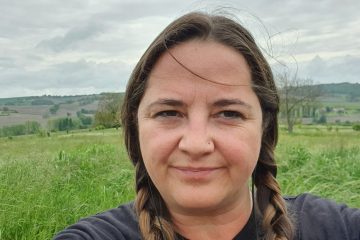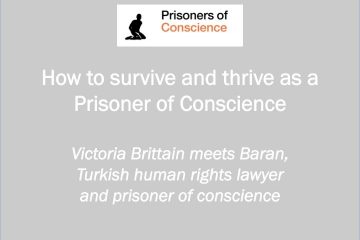Pam is a bright, bubbly and chatty 20-something-year old student. She loves Asian food, red nail polish and Hollywood movies “I’m a movie geek. Les Miserables with the revolution is my all-time favourite – I could watch it every week,” she tells me during our meeting at the London School of Economics where she is studying a Masters in International Relations, funded with a grant from Prisoners of Conscience.

The smiles and confidence hide a traumatic past. Some three years ago, Pam was living happily in Bangkok, the city where she had grown up and studied. The daughter of a police officer and NGO worker, she was dedicated to the idea of working for the government, of giving service to her country. She studied political science at one of Thailand’s top universities and then was fortunate enough to be given an internship at the Thai embassy in Brussels. “I love the EU,” she says enthusiastically. “I chose to go here because this is where the Thai representative to Brussels was working, but this is when everything changed.”
Once inside “the system”, Pam explains that she quickly realised it wasn’t how she thought it would be. Describing it as a “façade”, she said “I wanted to work for the people, but the diplomats weren’t working for the people – they were working for the Monarchy. I was so naïve. This was a gamechanger for me.”
When she returned home, she joined a pro-democracy group. But while this would be considered perfectly normal and acceptable in the UK, it is not so in Thailand.
Since the military took power in 2014, the government has clamped down on freedom of expression and the UN says that the number of people investigated for free speech-related offences has more than doubled in comparison to the previous 12 years. Media censorship is common. Activities as minor as liking Facebook Posts can land an individual in trouble. Campaigning for democracy is certainly not encouraged.
“As student activists we would sometimes organise events, which would get raided and we would get locked up. But this wasn’t serious, they were just trying to intimidate us. But then one time, we organised some flyers about the referendum and that’s when it became a big deal,” she says.
The 2016 referendum gave the Thai people the opportunity to vote on a government charter. However, it was widely felt that the charter offered only semi-democracy and would tighten military rule. In addition, opposition groups to the charter were barred from campaigning against it and activists were arrested, detained and prosecuted in military courts – Pam among them.
“We told people to vote no because the referendum would secure the military’s position and power, but we didn’t realise that this was a serious crime. I was dragged to prison – this time it was for real.”

Pam was eventually released on bail on the condition that she would never again involve herself in any kind of political activity. In addition, she was obliged to report to the Military Court every 12 days for an indefinite period of time. They also threatened her parents’ careers in another attempt to intimidate and harass her.
As a passionate supporter of democracy and as someone who wanted a career in politics, the conditions of her bail meant Pam had to make an impossible choice. Either give up all her dreams and aspirations and stay in Thailand; continue campaigning for democracy and face a 10-year sentence; or leave the country and everything she knew and loved behind.
“I hoped that it would not be long before we achieved democracy so I made the decision to leave Thailand and seek political asylum in the UK as that meant I could continue to fight for human rights and democracy, and then return when everything had changed,” she says.
“I didn’t want to be away from home for long. I wanted to wait for a better government and then go back. But they are still arresting people and still locking people up. They are not going away,” she says.
As a result, she hasn’t seen her parents for over three years. “We face-time. I miss them but at least my girlfriend is here with me. She supports me. She loves everything I do. I am very lucky,” her face brightening at the mention of her partner.
Pam is thriving at LSE. In addition to studying her Masters, she volunteers with various charity and campaign groups and loves organising panel discussions on topics of interest. However, she does have to keep a relatively low profile.
“I have friends who are still on the run. Their passports got revoked – their own government made them stateless. They are now living in exile elsewhere. They have to watch their backs all the time. Life is dangerous for them and the more I share publicly, the more weight it adds to their own charges.”
Despite all that has happened to her, Pam isn’t going to stop pursuing her ambition. She’s passionate about human rights and is looking forward to a career in a humanitarian organisation. “I am pro-human. I love helping people. I couldn’t ever take a job where I get paid lots of money so I can buy nice handbags but where I wasn’t able to contribute to society.”
“Please thank the donors of Prisoners of Conscience” she says enthusiastically. “Please thank them a great deal. Because I couldn’t do this course if it wasn’t for the grant you gave me. It is you who has helped make this happen.”


